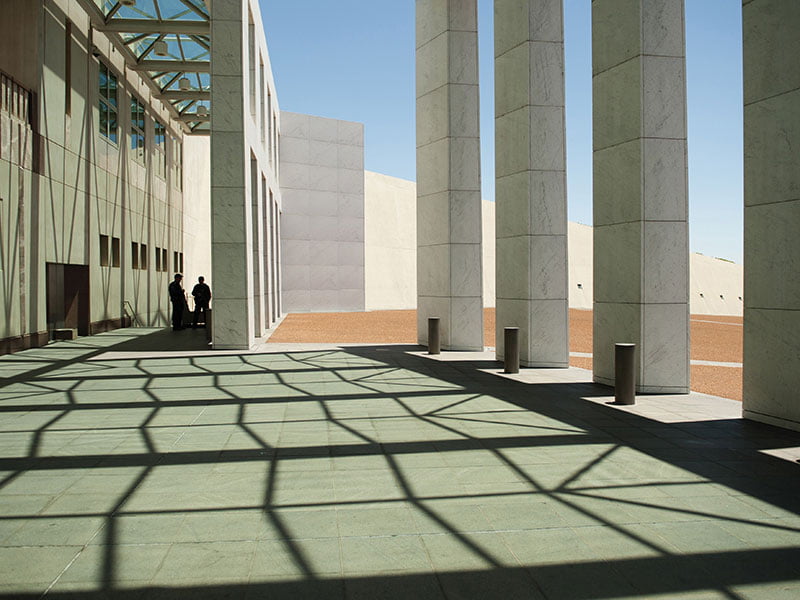Legislation aimed at preventing online trolling is unlikely to be effective, may lead to increased censorship by tech giants, and leave victims with no legal recourse, the Law Council of Australia has warned.
The federal government is currently consulting on its proposed Social Media Anti-Trolling Bill, which would enable those who believe they have been defamed to identify anonymous posters of the material via a court order, and reverse the High Court’s Voller decision that administrators of social media pages are liable for defamatory comments posted by third parties.
In a scathing submission on the legislation, the Law Council said the reforms will do nothing to address social media trolling, and may actually restrict the recourse available to people, encourage social media giants to censor posts and should be delayed until a nation-wide review of defamation laws is completed.
“While the intentions of this draft bill are laudable, it is not likely to achieve the outcomes it seeks and we think there are better alternatives already being investigated,” Law Council of Australia president Tass Liveris said.

The Model Defamation Provisions review was launched in late 2018, and a year later a second stage was announced to investigate the responsibility and liability of digital platforms for defamatory material published on them, which properly kicked off in April last year.
The government has provided “no adequate evidentiary basis for the urgency” in introducing the new legislation to interrupt this process, and the anti-trolling reforms should be put on hold until this review is completed.
“The Model Defamation Provisions review into the liability of intermediaries has been a substantial and in-depth process and it has the potential to ensure that reforms to the law of defamation in Australia are developed in a way which is comprehensive, complementary, certain and clear,” Mr Liveris said.
“Therefore, the Law Council considers that intervention at the federal level in the law of defamation should not occur until the completion of the Stage 2 review process and should form part of any package of reforms to the liability of online intermediaries more broadly.”
There is also too much focus on defamation as a means to combat online abuse, Mr Liveris said.
“Defamation is actually only a very small proportion of what constitutes social media trolling. For many reasons, defamation law is likely to be a relatively ineffective mechanism for seeking individual reputational redress and for reducing trolling activity on social media. In practice, the draft bill will have very little impact in improving this situation,” he said.
A key part of the proposed legislation is that it would in part override the High Court’s decision in the Voller case, a ruling which found that news organisations were publishers of third-party comments made on their Facebook pages.
The government’s bill places a greater onus on the commenter and the social media companies rather than the page administrators, and gives social media firms a free pass from defamation if a complaints process is established and followed.
Hosts and administrators of social media pages would be absolved from any liability for defamatory content posted by others on their pages under the reforms. The Law Council said it is concerned with this blanket exemption.
“On the current drafting, hosts and administrators would not even be required to remove defamatory posts of which they become aware,” the Law Council submission said.
While the legislation also offers a way for individuals to identify anonymous users through the courts, this will be difficult practically, the Council said.
“There are likely to be significant difficulties for social media service providers to adequately verify the identities of its users, including retrospectively. This is particularly given the case that there are already extensive numbers of existing social media accounts operating in Australia,” the submission said.
“The proposed reforms also create an incentive for end-users to provide false information in order to avoid potential liability.
“If the complaints scheme requirement and related safe harbour defence are unworkable in practice, it is again likely that social media service providers will be left with recourse to any applicable defence.”
The bill also claims that if someone can’t identify an individual online, they have no ability to pursue their defamation claim. But the Law Council said this is incorrect, with existing civil procedure rules enabling a complainant to ascertain an originator’s identity by way of preliminary discovery.
The increased onus of responsibility on social media firms may also encourage them to err on the side of caution and potentially increase censorship on these platforms, the Law Council argued.
At a public hearing about the anti-trolling legislation last week, WA Australian of the Year 2019 Noelle Martin said the reforms would only help the already powerful, not those most impacted by online abuse.
“I believe that the bill is not an online safety bill, and it’s not an unmasking online trolls bill. It is purely and simply an assisting well-resourced defamation claimants bill. If this committee is serious about addressing online safety…this bill contains fundamental flaws,” Ms Martin said.
Do you know more? Contact James Riley via Email.


Scott Morrison is the real victim here, and it’s about time there was a special defamation bill to protect his notoriously glassy jaw from unseemly criticism by the lower orders.